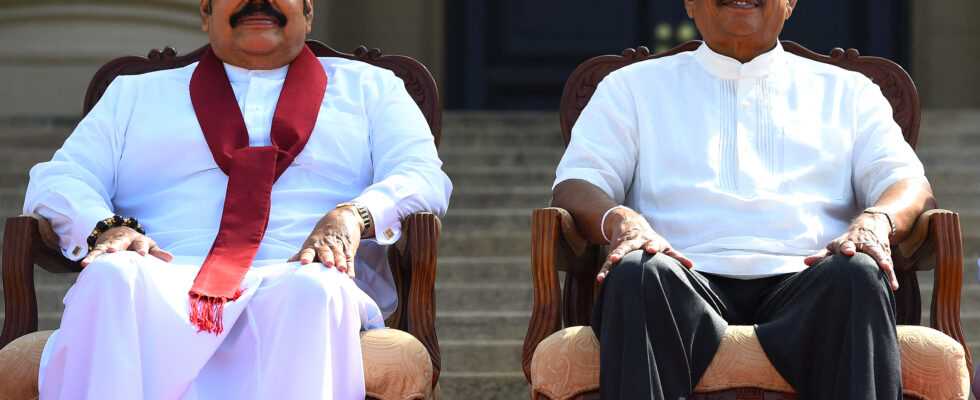For almost a month and a half, Sri Lanka has been sinking gradually into both an economic and political crisis, which resulted in the resignation of Prime Minister Mahinda Rajapaksa and the appointment of Ranil Wickremesinghe to replace him in this post. In this uncertain context, his brother, President Gotabaya Rajapaksa, has just relinquished certain executive powers.
At the end of March, a popular uprising was born across the country. The reason ? The constant shortages of basic necessities. The war between Russia and Ukraine has raised fuel prices around the world. Already heavily indebted, Sri Lanka has not been able to cope with this increase which has a very concrete effect on the population.
She took to the streets across the country to protest the shortages of food, gas, medicine and electricity. Sri Lankans have to live with power cuts lasting several hours each day.
In addition to the protest linked to these shortages of essential products, the demonstrators more widely rebelled against the president, Gotabaya Rajapaksa and against his brother and prime minister, Mahinda Rajapaksa. Indeed, the executive duo of the country is accused of having misused public funds, building for example a port in their hometown of Hambantota, and this, while the port is not economically viable. Worse still, this money comes from loans contracted with China at astronomical interest rates (Western governments having stopped financially helping Sri Lanka, in view of the human rights very often violated in the country) . The country’s economy was already very weakened by the drop in tourism linked to the covid-19 pandemic, then by the massive drop in the Sri Lankan rupee which plunged the country into deep inflation.
DEADLY RIOTS ACROSS THE COUNTRY
Peaceful demonstrations therefore took place across the country, demanding the departure of the President and his Prime Minister. However, from pacifist, these demonstrations very quickly turned into a riot when the Prime Minister urged 3,000 supporters to come to Colombo, in order to protest against the anti-government demonstrators, organizing bus transport to the capital. The protests have so far killed nine people including a ruling party MP, who police say killed himself after shooting two protesters who were blocking his car. In an attempt to stem these gatherings, the Sri Lankan authorities shut down social media across the country, which was seen as an attack on freedom of expression by the population and only increased the tensions across the country.
THE PRESIDENT TRIES TO REASSURE
Following these demonstrations, the Prime Minister tendered his resignation to the President, however, this did not prevent the demonstrators from forcing their way into his official residence, forcing the army to evacuate him to safety. A state of emergency and a curfew were declared last Friday, and the defense minister said: “Security forces have been ordered to shoot on sight anyone who loots public property or attacks to the life”.
In a televised speech, the president tried to reassure the population, promising that he would choose a unifying prime minister: “I will appoint a prime minister who will lead a majority in parliament and inspire confidence in the people”. The president also said he would amend the constitution to reinstate Amendment 19, stripping him of his decision-making power over the appointment of the highest civil servants, which includes, but is not limited to , officials of the police, electoral services and justice.
A NEW PRIME MINISTER APPOINTED
While the name of the new Prime Minister has just been announced in the person of Ranil Wickremesinghe, who has held this position for the 6th time since 1993, the former Prime Minister is prevented from leaving the country, as well as his son and about fifteen of his political allies. Indeed, a Sri Lankan court banned them from leaving the country because of the violence linked to the demonstrations and because the Prime Minister incited his supporters to go to the demonstrations causing considerable human and material damage.
